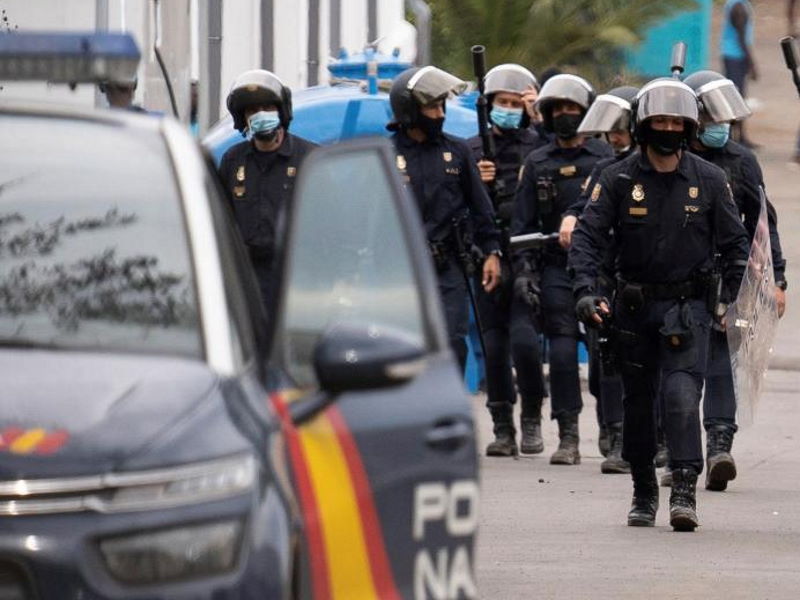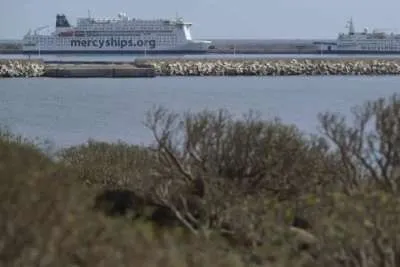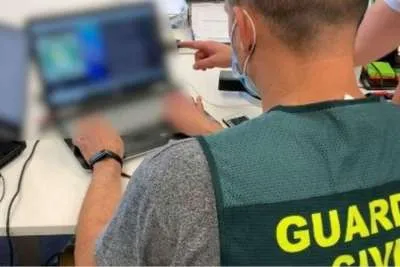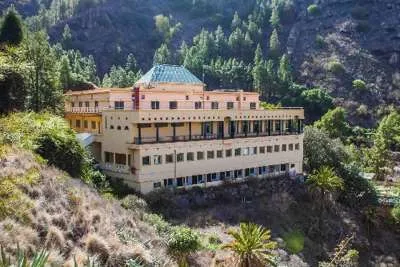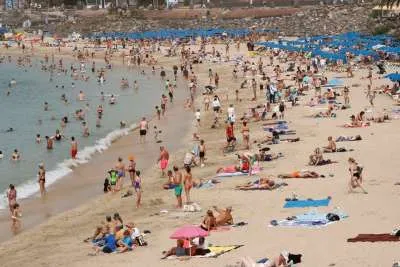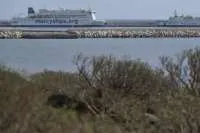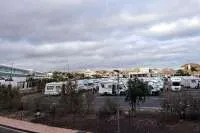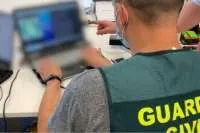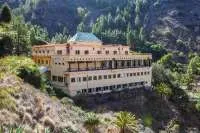106 Italians arrested in Tenerife for various crimes and laundering 10 million euros
- 22-09-2021
- National
- Canarian Weekly
In a joint operation with the Polizia di Stato of Italy and EUROPOL, the National Police have dealt a severe blow to the Italian mafia through an operation that has ended with the arrest of 106 people in the south of Tenerife, who are accused of belonging to a criminal organization, fraud, drug trafficking, money laundering, kidnapping, falsification of documents, injuries, threats, coercion, robbery with violence, robbery with force, Social Security fraud and illegal possession of weapons. The detainees have also allegedly laundered more than ten million euros in the last year, coming from computer scams carried out throughout Europe.
Practically the whole operation was carried out on the island. The investigations began here and the vast majority of the searches and arrests were made here. Investigations began in June 2020 by the Technological Crimes Group of the National Police in Tenerife, who detected that a group of people linked to different Italian mafias were settled on the island, whose mission was to launder the money obtained through multiple computer crimes committed in Spain, Germany, Ireland, Italy, Lithuania and the United Kingdom.
The investigation established that the group had a high degree of technical ability, which allowed it to cover different types of computer fraud: phishing, smishing, vishing, sim swapping, CEO fraud and hacks to commercial companies. All this brought them huge amounts of income, estimated at more than ten million euros in a single year. Once the money was received in controlled bank accounts, it was laundered through their companies or in cryptocurrency, to later be reported to the mafia organizations. To date, 118 bank accounts have been blocked.
The leaders directed a whole network of recruiters and intermediaries:
Police discovered that the criminal organization was being run with an authentic criminal pyramidal structure, and directed a whole network of members and hundreds of financial intermediaries, known as "mules", who, although they were at the lowest level in city organizations, were an indispensable link in the complex process of money laundering.
The group had also managed to settle and enter into different levels of society: business networks, law firms and banking entities, among others. This level of access not only gave the organization impunity for money laundering, but also for the different criminal activities of these mafia groups carried out in Spain.
The police investigations made it possible to corroborate, among these activities, prostitution, arms sales, drug trafficking, kidnapping, fraud, identity theft, document falsification, crimes against Social Security, robberies with force and violence, injuries and even involvement of several of its members in two homicides carried out on the island.
The amount of money they obtained was so high that they managed hundreds of bank accounts that they opened and closed continuously, on one occasion kidnapping a woman and, after threatening her at gunpoint, taking her to an ATM to steal all her money and open 50 online bank accounts for the organization. They threatened the victim and those around her to prevent them from testifying against them.
The extreme violence of this group was also manifested in other criminal actions. They beat up, robbed establishments and extorted both members of the organization who deviated from internal regulations, and other people or companies in Tenerife who, for fear of reprisals, did not report, which gave them a significant degree of impunity.
The entries and records made by the agents provided data that demonstrated the implication of those investigated in the numerous criminal offences, including drug trafficking since they discovered a marijuana plantation that composed of more than 400 plants and a processing centre with an ‘iceolator’ that filters the leaves of marijuana with water and ice to increase its effects since it is much more powerful due to the increase in the active principle THC.
Data recovery on numerous scammed victims:
During one of the searches, officers seized more than 80 telephony cards activated to carry out ‘sim swapping’ and vishing crimes, obtaining data on numerous victims of computer scams. For the mafia, this mode of financing was so important that they sent fugitive members of the Italian Justice from Italy to control their financing activities on the spot, and thus supervise the obtaining and sending of money.
Two of the detainees had valid European Arrest Warrants for 20 years in prison against them for drug trafficking, robbery with violence and robbery with force. Once settled in Spain, they continued to live thanks to the crime, also had active arrest warrants issued by the Courts of Barcelona and Arona for kidnapping and robberies with violence.
It was also common for a member of the mafia leaders to travel from Naples to Tenerife to control the operations that were carried out. Each time this happened, investigators in the Canary Islands prepared all the coverage and security measures to avoid the detection of this person in Spain, although the police investigations allowed him to be identified and detained in Italy through a European Detention Order.
The security measures adopted by these fugitives, aware of their situation and their contacts, as well as the police pressure, led to the operational exploitation being advanced, once the agents confirmed that they were in possession of false documentation and that they were programming their escape from Spain.
Single command centre located in Santa Cruz de Tenerife:
For this, a police operation was designed, planned and coordinated from the island of Tenerife, carrying out 18 entries and searches of properties and leading to a total of 106 arrests.
To carry out the police deployment, a single command centre was established located in Santa Cruz, bringing together all participants from the National Police, EUROPOL, Polizia di Stato, with a direct channel of communication with the judicial authorities of Arona, Bari (Italy), and the Computer Crime Unit of the Supreme Court.
During the operation, agents seized a stun gun, 12,615 euros in cash, 402 marijuana plants in different stages of development, two precision weighing scales, material for the distribution of cannabis, 118 blocked bank accounts, 224 bank cards, and numerous mobile phones, laptops, computers and other electrical devices.
Other articles that may interest you...
Trending
Most Read Articles
Featured Videos
TributoFest: Michael Buble promo 14.02.2026
- 30-01-2026
TEAs 2025 Highlights
- 17-11-2025


